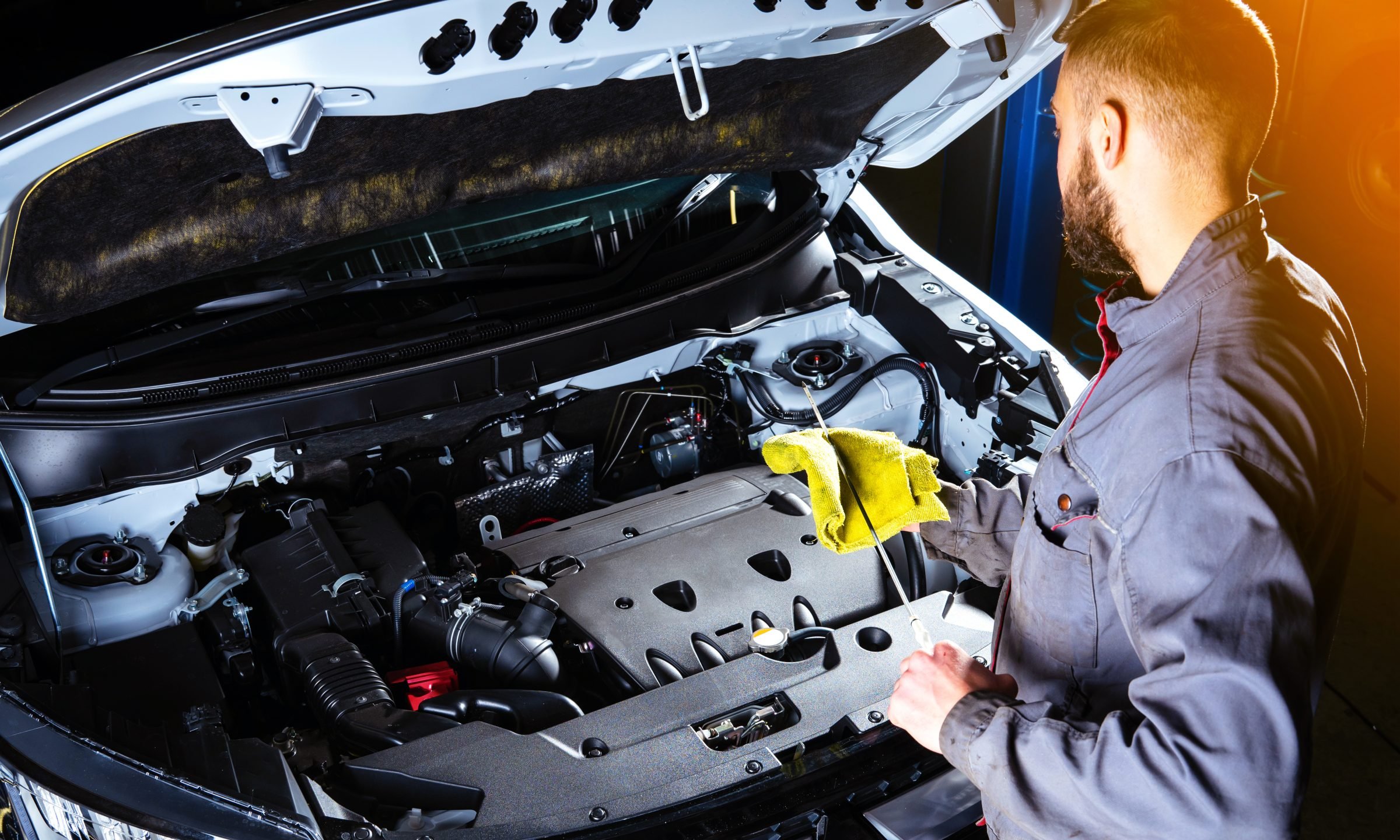Featured
The timing belt is an important part of your engine, liable for synchronizing the movement of different engine parts, such as the crankshaft and camshaft. While the timing belt may not be something you think around typically, neglecting its upkeep can lead to substantial engine damages and pricey repairs.
What Is a Timing Belt and Just How Does It Work? The timing belt is a rubber or composite product belt that connects the crankshaft to the camshaft in an inner burning engine. The camshaft controls the opening and closing of the engine's intake and exhaust shutoffs, and it needs to be timed perfectly with the movement of the pistons in the engine. The timing belt makes certain that these parts remain in sync, enabling the engine to run smoothly.
If the timing belt fails or becomes worn, the camshaft and crankshaft will no much longer be synchronized, which can cause the engine's shutoffs to strike the pistons. This causes disastrous engine damages and often calls for costly fixings or perhaps an engine substitute.
Why Is Timing Belt Replacement Important? Gradually, the timing belt can put on down as a result of rubbing, warm, and basic engine wear. While it might look like a little issue, a damaged timing belt can lead to significant engine issues. Below's why prompt replacement is essential:
Stopping Engine Damage: As mentioned, a damaged or sliding timing belt can trigger the engine's shutoffs and pistons to clash. This leads to bent shutoffs, harmed pistons, and in serious situations, a full engine failure. Replacing the timing belt before it breaks can avoid this costly damage.
Preserving Engine Effectiveness: A worn-out timing belt can interfere with the synchronization of the engine elements, decreasing overall engine performance. Replacing the belt assists keep optimum engine function, making sure smooth procedure, improved fuel effectiveness, and far better performance.
Staying Clear Of Unexpected Break down: A broken timing belt can leave you stranded on the side of the road, creating a significant trouble. By replacing the timing belt at the recommended intervals, you can stay clear of the threat of an unanticipated failure, especially in the center of a lengthy journey or when you least anticipate it.
![]()
Saving Money in the Long Run: While timing belt replacement can appear like a cost you could intend to delay, it's more affordable than the expense of repairing or changing a damaged engine. If the timing belt breaks, the replacement cost is reasonably economical compared to the extensive fixings called for. Positive maintenance can conserve you thousands of bucks out of commission and protect your lorry's value.
When Should You Replace the Timing Belt? The timing belt replacement timetable can vary depending on your vehicle's make and design. As a whole, the majority of producers advise changing the timing belt every 60,000 to 100,000 miles. However, it's constantly best to consult your owner's handbook or a relied on technician for details suggestions for your vehicle.
Signs that your timing belt might need substitute consist of unusual engine noises such as whining or ticking, trouble beginning the engine, or an obvious decrease in engine performance. If you experience any of these symptoms, it is essential to have the timing belt inspected instantly.
![]()
Verdict. Changing the timing belt at the suggested periods is a crucial part of preserving your engine's health and wellness and ensuring that your car runs efficiently. A broken timing belt can cause pricey repair work, engine failing, and unanticipated malfunctions, which can be stayed clear of with appropriate maintenance. If you observe any indicators of wear or damages, always follow the supplier's recommended timing belt replacement timetable and consult an expert auto mechanic. By maintaining this important component of your engine in good problem, you'll shield your vehicle from pricey repair work and delight in much more miles of stress-free driving.
What Is a Timing Belt and Just How Does It Work? The timing belt is a rubber or composite product belt that connects the crankshaft to the camshaft in an inner burning engine. The camshaft controls the opening and closing of the engine's intake and exhaust shutoffs, and it needs to be timed perfectly with the movement of the pistons in the engine. The timing belt makes certain that these parts remain in sync, enabling the engine to run smoothly.
If the timing belt fails or becomes worn, the camshaft and crankshaft will no much longer be synchronized, which can cause the engine's shutoffs to strike the pistons. This causes disastrous engine damages and often calls for costly fixings or perhaps an engine substitute.
Why Is Timing Belt Replacement Important? Gradually, the timing belt can put on down as a result of rubbing, warm, and basic engine wear. While it might look like a little issue, a damaged timing belt can lead to significant engine issues. Below's why prompt replacement is essential:
Stopping Engine Damage: As mentioned, a damaged or sliding timing belt can trigger the engine's shutoffs and pistons to clash. This leads to bent shutoffs, harmed pistons, and in serious situations, a full engine failure. Replacing the timing belt before it breaks can avoid this costly damage.
Preserving Engine Effectiveness: A worn-out timing belt can interfere with the synchronization of the engine elements, decreasing overall engine performance. Replacing the belt assists keep optimum engine function, making sure smooth procedure, improved fuel effectiveness, and far better performance.
Staying Clear Of Unexpected Break down: A broken timing belt can leave you stranded on the side of the road, creating a significant trouble. By replacing the timing belt at the recommended intervals, you can stay clear of the threat of an unanticipated failure, especially in the center of a lengthy journey or when you least anticipate it.

Saving Money in the Long Run: While timing belt replacement can appear like a cost you could intend to delay, it's more affordable than the expense of repairing or changing a damaged engine. If the timing belt breaks, the replacement cost is reasonably economical compared to the extensive fixings called for. Positive maintenance can conserve you thousands of bucks out of commission and protect your lorry's value.
When Should You Replace the Timing Belt? The timing belt replacement timetable can vary depending on your vehicle's make and design. As a whole, the majority of producers advise changing the timing belt every 60,000 to 100,000 miles. However, it's constantly best to consult your owner's handbook or a relied on technician for details suggestions for your vehicle.
Signs that your timing belt might need substitute consist of unusual engine noises such as whining or ticking, trouble beginning the engine, or an obvious decrease in engine performance. If you experience any of these symptoms, it is essential to have the timing belt inspected instantly.

Verdict. Changing the timing belt at the suggested periods is a crucial part of preserving your engine's health and wellness and ensuring that your car runs efficiently. A broken timing belt can cause pricey repair work, engine failing, and unanticipated malfunctions, which can be stayed clear of with appropriate maintenance. If you observe any indicators of wear or damages, always follow the supplier's recommended timing belt replacement timetable and consult an expert auto mechanic. By maintaining this important component of your engine in good problem, you'll shield your vehicle from pricey repair work and delight in much more miles of stress-free driving.
Latest Posts
Keep Your Carpet Looking Its Finest with Easy, Expert Treatment
Published Apr 20, 25
1 min read
Open Exclusive Discounts with WyHy's Love My Cooperative credit union Rewards
Published Apr 20, 25
1 min read
Change Your Home with Top Quality Flooring Solutions
Published Apr 19, 25
1 min read
More
Latest Posts
Keep Your Carpet Looking Its Finest with Easy, Expert Treatment
Published Apr 20, 25
1 min read
Open Exclusive Discounts with WyHy's Love My Cooperative credit union Rewards
Published Apr 20, 25
1 min read
Change Your Home with Top Quality Flooring Solutions
Published Apr 19, 25
1 min read